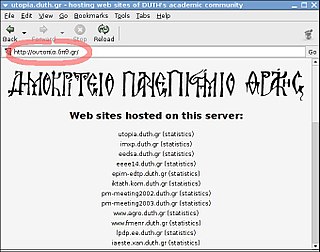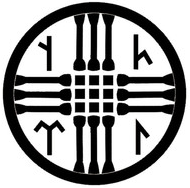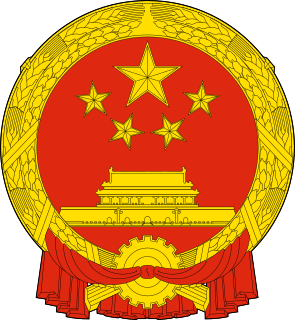A top-level domain (TLD) is one of the domains at the highest level in the hierarchical Domain Name System of the Internet. The top-level domain names are installed in the root zone of the name space. For all domains in lower levels, it is the last part of the domain name, that is, the last label of a fully qualified domain name. For example, in the domain name www.example.com, the top-level domain is com. Responsibility for management of most top-level domains is delegated to specific organizations by the Internet Corporation for Assigned Names and Numbers (ICANN), which operates the Internet Assigned Numbers Authority (IANA), and is in charge of maintaining the DNS root zone.

A domain name is an identification string that defines a realm of administrative autonomy, authority or control within the Internet. Domain names are used in various networking contexts and for application-specific naming and addressing purposes. In general, a domain name identifies a network domain, or it represents an Internet Protocol (IP) resource, such as a personal computer used to access the Internet, a server computer hosting a web site, or the web site itself or any other service communicated via the Internet. In 2017, 330.6 million domain names had been registered.

The Government of Ghana was created as a parliamentary democracy, followed by alternating military and civilian governments. In January 1993, military government gave way to the Fourth Republic after presidential and parliamentary elections in late 1992. The 1992 constitution divides powers among a president, parliament, cabinet, council of state, and an independent judiciary. The government is elected by universal suffrage.

.hk is the designated Internet country code top-level domain (ccTLD) for Hong Kong. It is administered by the Hong Kong Internet Registration Corporation (HKIRC), the only organization endorsed by the Hong Kong Government to undertake the administration of 'hk' domain names. Hong Kong Internet Registration Corporation (HKIRC) is a non-profit making, non-statutory, member-based corporation established in 2001.

An internationalized domain name (IDN) is an Internet domain name that contains at least one label that is displayed in software applications, in whole or in part, in a language-specific script or alphabet, such as Arabic, Chinese, Cyrillic, Devanagari, Hebrew or the Latin alphabet-based characters with diacritics or ligatures, such as French. These writing systems are encoded by computers in multibyte Unicode. Internationalized domain names are stored in the Domain Name System (DNS) as ASCII strings using Punycode transcription.

Tengri is one of the names for the primary chief deity used by the early Turkic and Mongolic peoples.

.cn is the country code top-level domain (ccTLD) for the People's Republic of China. Domain name administration in mainland China is managed through a branch of the Ministry of Industry and Information. The registry is maintained by China Internet Network Information Center (CNNIC). Entities connected to Hong Kong and Macau use .hk and .mo respectively.

Autonomous administrative divisions of China are specific areas associated with one or more ethnic minorities that are designated as autonomous within the People's Republic of China (PRC). These areas are recognized in the Constitution of China and are nominally given a number of rights not accorded to other administrative divisions. For example, Tibetan minorities in Autonomous regions are granted rights and support not given to the Han Chinese, such as fiscal and medical subsidies.
.su was assigned as the country code top-level domain (ccTLD) for the Soviet Union (USSR) on 19 September 1990. Even though the Soviet Union itself was dissolved a mere 15 months later, the .su top-level domain remains in use today with over 100,000 .su domains as of July 2020. It is administered by the Russian Institute for Public Networks.

.tw is the Internet country code top-level domain (ccTLD) for Taiwan. The domain name is based on the ISO 3166-1 alpha-2 country code TW. The registry is maintained by the Taiwan Network Information Center (TWNIC), a Taiwanese non-profit organization appointed by the National Communications Commission (NCC) and the Ministry of Transportation and Communication. Since 1 March 2001, TWNIC has stopped allowing itself to sign up new domain names directly, instead allowing new registration through its contracted reseller registrars.
.li is the Internet country code top-level domain (ccTLD) for Liechtenstein. The .li TLD was created in 1993. The domain is sponsored and administered by the University of Liechtenstein in Vaduz. Registration of .li domain names used to be managed by SWITCH, administrator of Switzerland's .ch ccTLD. In February 2013, SWITCH discontinued its .li registration service for private customers, delegating it to a number of recognized partner firms.

.mo is the Internet country code top-level domain (ccTLD) for Macao.

.la is the Internet country code top-level domain (ccTLD) for Laos.

ElgooG is a mirrored website of Google Search with horizontally flipped search results, also known as a "Google mirror". It was created by All Too Flat "for fun", which started to gain popularity in 2002. The site found practical use in the People's Republic of China after the domestic banning of Google, circumventing the Great Firewall. A WHOIS request shows that the domain elgoog.im was registered to Google Inc. since 2000, but it is currently for sale.
The China Internet Network Information Center, or CNNIC, is the administrative agency responsible for Internet affairs under the Ministry of Industry and Information Technology of the People's Republic of China.
The Lifan Yuan was an agency in the government of the Qing dynasty which supervised the Qing Empire's frontier Inner Asia regions such as its Mongolian dependencies and oversaw the appointments of Ambans in Tibet.
DTMB is the digital TV standard for mobile and fixed devices, developed in the People's Republic of China. It is used there and in both of their special administrative regions, and also in Cambodia, the Comoros, Cuba, East Timor, Laos and Pakistan. In Pakistan, as part of the China–Pakistan Economic Corridor Project, ZTE Corporation will provide Pakistan Television Corporation collaboration across several digital terrestrial television technologies, staff training and content creation including partnerships with Chinese multinational companies in multiple areas including television sets and set top boxes as a form of "International Cooperation".

The Ministry of Culture (MOC) was a ministry of the government of the People's Republic of China which was dissolved on March 19, 2018. The responsibilities of the MOC, which were assumed by the Ministry of Culture and Tourism, encompassed cultural policy and activities in the country, including managing national museums and monuments; promoting and protecting the arts ; and managing the national archives and regional culture centers. Its headquarters were in Chaoyang District, Beijing.











